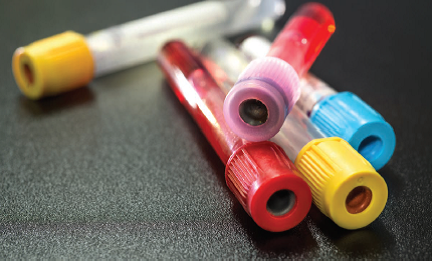
If not diagnosed and treated, this often-overlooked disease can lead to liver cancer.
“We’re in the era of viral hepatitis elimination,” says Su Wang, MD, MPH, an internal medicine specialist at Saint Barnabas Medical Center (SBMC) and a member of Barnabas Health Medical Group. “We have the tools to do it. And with liver cancer on the rise, we really need to prioritize it.”
Hepatitis is an inflammation of the liver that can be caused by drug or alcohol use, but globally is most commonly caused by a viral infection—either Hepatitis B or Hepatitis C. Eighty percent of liver cancer in the world is due to one of these, and they’re major contributors to the 45 percent jump in liver cancer in the U.S. between 2000 and 2016.
Although more than 4 million Americans are estimated to be living with Hepatitis B or Hepatitis C, up to half don’t know it because the diseases can progress for years without symptoms. Hepatitis screenings, which are done via blood test, aren’t yet standard in primary care. The Centers for Disease Control and Prevention recommends Hepatitis C screening for all adults born between 1945 and 1965, and Hepatitis B screening for anyone born in Asia or the Pacific Islands, or who has at least one parent born there. (For more specific information, visit www.cdc.gov/KnowHepatitisB.)
Last March, SBMC began hepatitis screenings for Emergency Department patients in high-risk groups. Of more than 11,000 individuals screened, 130 have tested positive for Hepatitis B or C.
“People who test positive are often surprised that they weren’t diagnosed before,” says Dr. Wang, who is also Medical Director of the Center for Asian Health and leading the development of a new Liver Center at SBMC. “But knowing they can get care to stay healthy is a big relief for them. As a physician, having the opportunity to successfully treat and even cure these patients is remarkable—and very fulfilling.”
ABCs OF HEPATITIS
Hepatitis B and C are both viral diseases that spread in similar ways:
• Sexual contact and exposure to infected bodily fluids
• Passed from mother to child at birth (Hepatitis B more than Hepatitis C)
• Sharing needles that have been contaminated with the blood from an affected person (the opioid epidemic is contributing to a rise in infections in the U.S.) Hepatitis B can’t be cured, but is treatable, and is preventable by vaccine. Hepatitis C is curable with oral therapy.
NEW LIVER CENTER AT SBMC
To combat an alarming rise in liver cancer and to address other liver diseases, SBMC has assembled a multidisciplinary team of experts for a new Liver Center, led by Su Wang, MD, MPH and Russell Langan, MD, a specialist in surgical oncology and hepatopancreatobiliary surgery. The team includes a hepatologist, internists, radiologists, gastroenterologists, oncologists, a patient navigator and more. Says Dr. Langan, “We are able to offer all aspects of liver care, personalized for what each patient needs.”
To learn more about liver treatments at Saint Barnabas Medical Center, visit our website. For more information on hepatitis or the Center for Asian Health, call 973.261.9080.